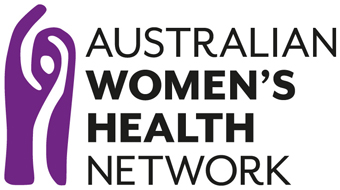Women and Sexual and Reproductive Health
Publisher: Australian Women’s Health Network, 2012
Status – CURRENT
This paper advocates for a rights-based approach to ensuring all women can access comprehensive sexual and reproductive health care appropriate to their needs,regardless of their location, age, sexuality, financial status and religious and cultural background. It explores seven key areas through which good sexual and reproductive health for Australian women can be achieved. These are:promoting positive and respectful attitudes to sex and sexuality;developing women’s health literacy; increasing reproductive choice; facilitating women’s health throughout pregnancy and birth;expanding prevention and treatment of reproductive cancers and menstrual issues; improving prevention and treatment of sexually transmitted infections (STIs); and equipping the health workforce to better respond to women’s health needs.


Women’s Sexual and Reproductive Health Key Priorities 2017-2020
/in Government Policy, Position Paper, Victoria /by adminPublisher: Victorian Government 2017
Status – CURRENT
This document, the first Australian sexual and reproductive health strategy, outlines the right to healthy and respectful relationships, inclusive, safe and appropriate services, access to accurate information, and effective and affordable methods of family planning and fertility regulation.
A health system that supports contraceptive choice
/in Australia-wide, Evidence / Statistics, Government Policy, Social Model of Health /by adminPublisher: Australian Healthcare and Hospitals Association, 2016
Status – CURRENT
The report by the Australian Healthcare and Hospitals Association, which was funded by MSD in Australia, states that inadequate Medicare rebates are one of the key reasons women are not offered more effective and less user-dependent methods of contraception. The report identifies unplanned pregnancy as “a key health issue for women in Australia”. It calls for increased Medicare funding for contraception services, including the extension of Medicare items to include nurses working in GP clinics who insert and remove different types of long-acting reversible contraceptive devices.
Abortion Policies and Reproductive Health around the World
/in International (global) /by adminPublisher: United Nations Department of Economic and Social Affairs Population Division, 2014
Status – CURRENT
This report presents information on changes in legal grounds for abortion and related reproductive health policies since around the time of the 1994 International Conference on Population and Development, for 197 countries in the world, including all 193 Member States of the United Nations, 2 Observer States (the Holy See and the State of Palestine) and 2 non-member States (Cook Islands and Niue) of the United Nations. The report is based primarily on information available from the World Population Policies Database. The report also draws information from the World Population Prospects: The 2012 Revision of the United Nations Population Division and the ICPD Beyond 2014 Global Survey conducted by the United Nations Population Fund in 2012, as well as selected data from other sources.
Fourth National Aboriginal and Torres Strait Islander blood borne viruses and sexually transmissible infections strategy 2014-2017 [Consultation]
/in Australia-wide /by adminPublisher: Australia. Department of Health, April 2014
Status – CURRENT
The draft Aboriginal and Torres Strait Islander BBV and STI Strategy 2014-2017 supports a coordinated effort across HIV, hepatitis B, hepatitis C and STI, while at the same time addressing unique disease or population specific approaches and issues. This draft strategy includes priority populations, risk factors and guiding principles. All national strategies include priority actions in the areas of prevention; testing; management, care and support; workforce; removing barriers; and surveillance, research and evaluation.
Pregnancy Terminations: Summary of the New Law Fact Sheet
/in Government Policy, Tasmania /by adminPublisher: Department Health and Human Services Tasmania
Status – CURRENT
This resource explains the recent changes to abortion legislation in Tasmania. Key words: Terminations; Abortion; Legislation.